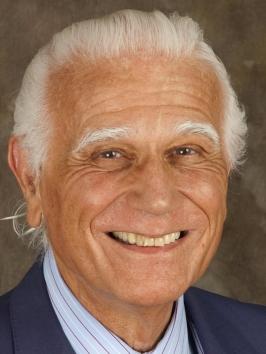
Nestor Gonzalez-Cadavid, PhD
Investigator, The Lundquist Institute
Professor of Urology, David Geffen School of Medicine at UCLA
Professor of Medicine, Division of Endocrinology, Metabolism and Molecular Medicine, Charles R. Drew University of Medicine and Science
Director, Urology Research Laboratory, LA BioMed at Harbor-UCLA Medical Center
Contact
Email
Gene therapy of erectile dysfunction
Research Description
The lab of Dr. Gonzalez-Cadavid utilizes a multidisciplinary approach that includes cell and molecular biology, biochemistry, molecular pharmacology, immuno-histochemistry, and related, both in cell culture, experimental animal work, and in human tissue and blood specimens.The basic translational research focuses on the cellular and molecular pathophysiology of: a) erectile dysfunction (ED) and its relationship to lower urogenital tract symptoms (LUTS), b) female stress urinary incontinence (SUI), c) Peyronie’s disease (PD), and d) critical limb ischemia (CLI), mostly in type 2 diabetes (T2D) and obesity.
These approaches are complemented by exploring novel biological and pharmacological therapies for these conditions, mostly aiming to improve stem cells tissue repair by continuous long-term administration (CLTA) of phosphodiesterase 5 inhibitors (PDE5i), and/or myostatin inhibitors and other strategies, as well to define, prevent, and counteract endogenous or therapeutically implanted stem cell damage by the noxious T2D diabetic milieu.
Dr. Gonzalez-Cadavid's lab has pioneered highly relevant translational work on the concept that diffuse corporal tissue fibrosis and oxidative stress in the context of T2D, post-radical prostatectomy, and aging are major factors for ED, similar to what occurs in a localized way, and with different etiology, in Peyronie’s disease, and SUI, and that dyslipidemia, senescence, and cytokines impair the repair ability of stem cells in various contexts. In addition, we are studying the noxious effects of excessive alcohol consumption on normal and malignant stem cells. The common additional interest in all these studies is the potential role of alterations in the global transcriptional expression (GTS) of microRNAs (miRs), that may serve as non invasive biomarkers or therapeutic targets.
Research Interests
Education
- MSc, 1961, University of Buenos Aires, Argentina
- PhD, 1964, University of Buenos Aires, Argentina
- PhD, 1967, University of London, England
Recent and/or Significant Publications
Kovanecz I, Vernet D, Masouminia M, Gelfand R, Loni L, Aboagye J, Tsao J, Rajfer J, Gonzalez-Cadavid NF. Implanted Muscle-Derived Stem Cells Ameliorate Erectile Dysfunction in a Rat Model of Type 2 Diabetes, but Their Repair Capacity Is Impaired by Their Prior Exposure to the Diabetic Milieu. J Sex Med. 2016 May;13(5):786-97.
Tsao J, Kovanecz I, Awadalla N, Gelfand R, Sinha-Hikim I, White R, Gonzalez-Cadavid NF. (2017). Muscle derived stem cells stimulate muscle myofiber repair and counteract fat infiltration in a diabetic mouse model of critical limb ischemia. J Stem Cell Res Ther. 2016 Dec;6(12). pii: 370. doi: 10.4172/2157-7633.1000370.
Tsao J, Vernet DA, Gelfand R, Kovanecz I, Nolazco G, Bruhn KW, Gonzalez-Cadavid NF. Myostatin genetic inactivation inhibits myogenesis by muscle-derived stem cells in vitro but not when implanted in the mdx mouse muscle. Stem Cell Res Ther. 2013;4(1):4. doi: 10.1186/scrt152. PubMed PMID: 23295128;
Kovanecz I, Rivera S, Nolazco G, Vernet D, Segura D, Gharib S, Rajfer J, Gonzalez-Cadavid NF. Separate or combined treatments with daily sildenafil, molsidomine, or muscle-derived stem cells prevent erectile dysfunction in a rat model of cavernosal nerve damage. J Sex Med. 2012 Nov;9(11):2814-26.
Kovanecz I, Masouminia M, Gelfand R, Vernet D, Rajfer J, Gonzalez-Cadavid NF. Myostatin, a profibrotic factor and the main inhibitor of striated muscle mass, is present in the penile and vascular smooth muscle. Int J Impot Res. 2017 Sep;29(5):194-201.
